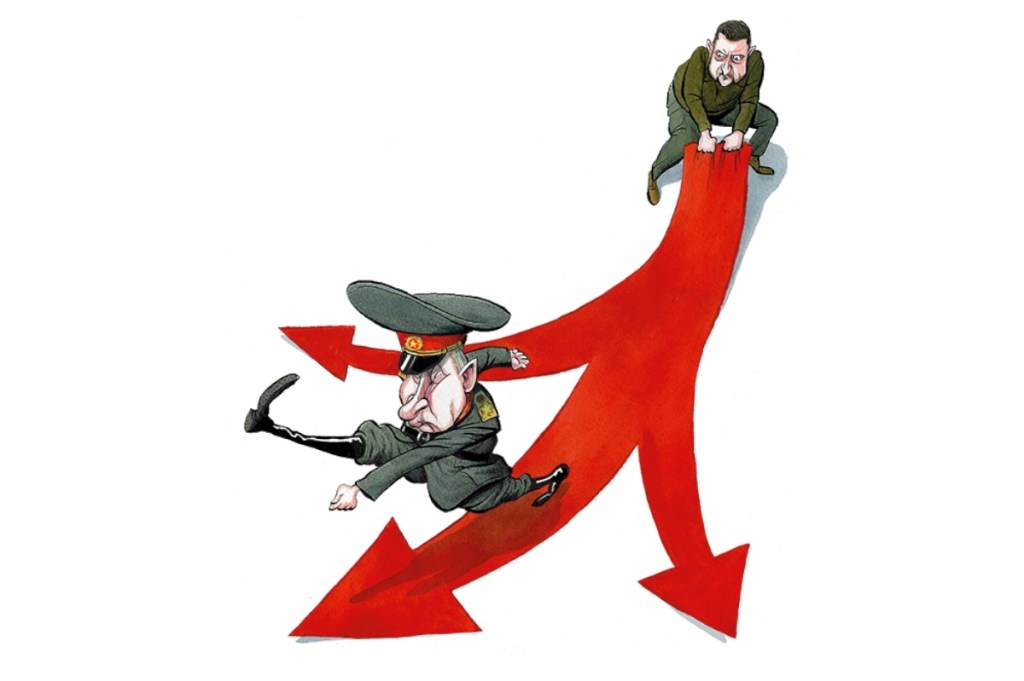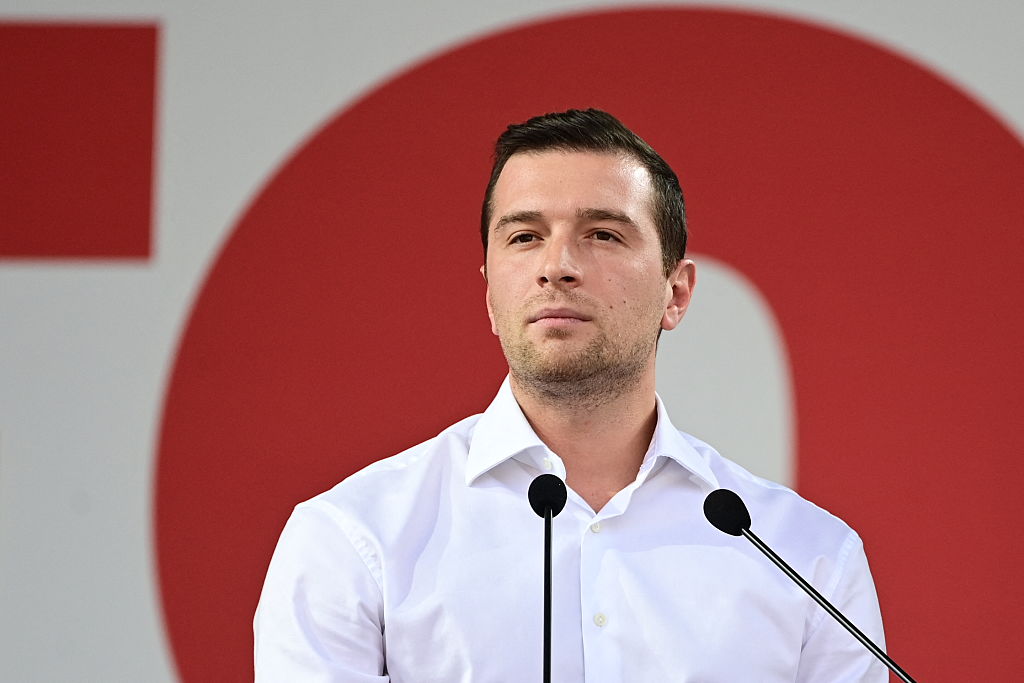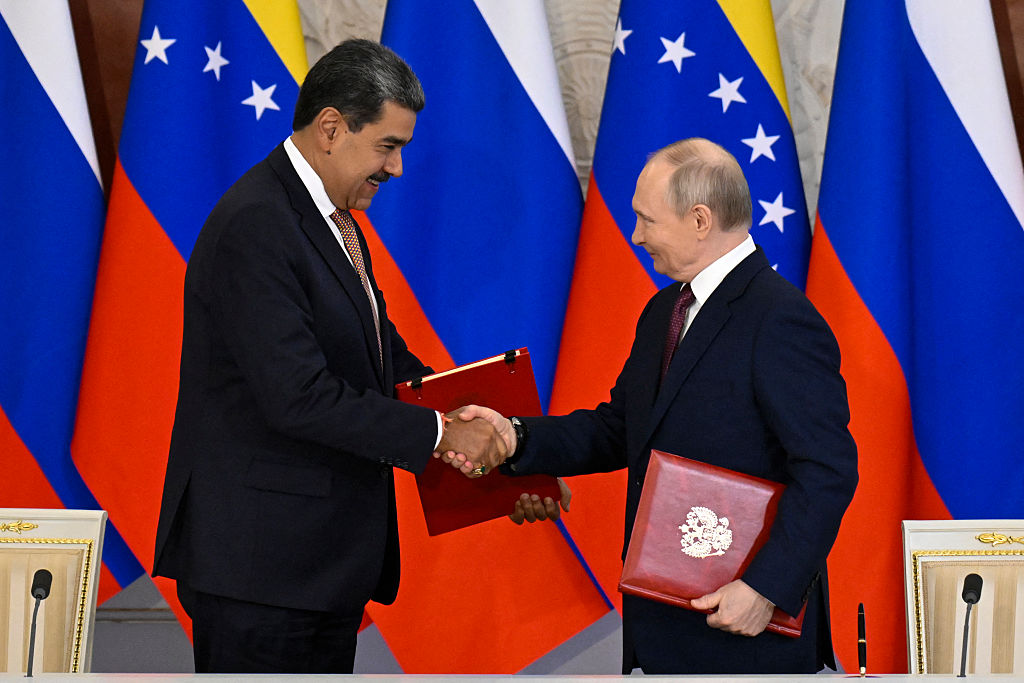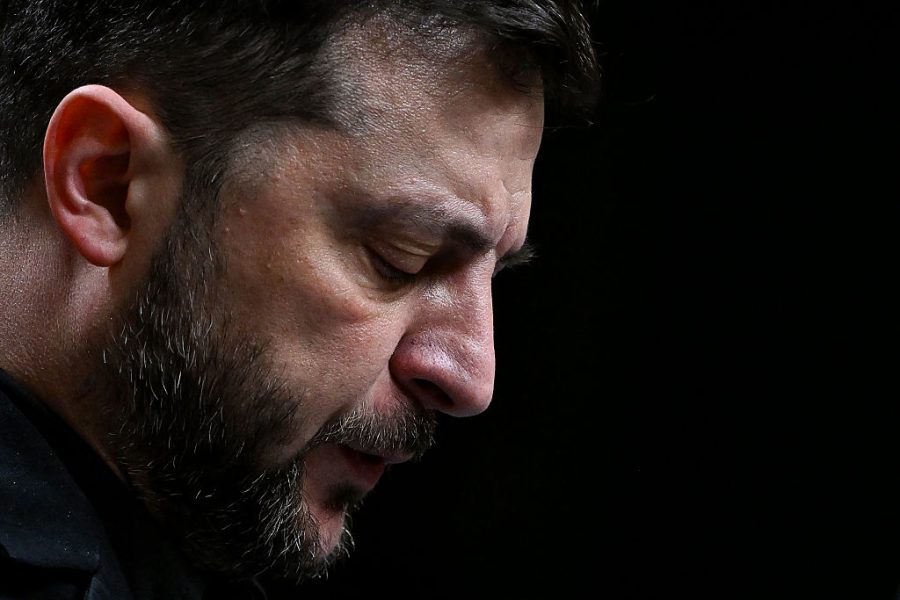During their spat in the Oval Office in February, Donald Trump infamously told his counterpart Volodymyr Zelensky, “You don’t have the cards” to play against Russia. It now appears that Trump could not have been more wrong if he tried. Yesterday, Ukraine inflicted a stunningly unexpected act of sabotage on Russia, directing a flotilla of explosive-laden drones at a number of airbases right across the country.
Dubbed “Operation Spider’s Web,” Ukraine worked across three time zones to launch 117 drones, successfully blowing up 41 aircraft, including nuclear-capable bombers, at four air bases across Russia. The attacks spanned the breadth of the country: two military bases in the Ivanovo and Ryazan regions, respectively – less than 200 miles from Moscow – were targeted, as was one base in the Arctic region of Murmansk, over 1,900 miles from Ukraine, and one in Siberia, over 3,400 miles from the conflict’s front line. A fifth military base was also targeted in the far eastern region of Amur, which borders China, but the truck carrying the drones caught fire before they could be deployed.
Ukraine worked across three time zones to launch 117 drones, successfully blowing up 41 nuclear-capable bomber jets at four air bases across Russia
According to Ukrainian officials, the operation took over 18 months to plan and was personally overseen by Zelensky. It was a complicated operation with many moving parts: the drones and crates to store them had to be smuggled onto Russian soil and loaded into trucks. These were driven close to the military bases and parked outside, before the trucks’ roofs were supposedly remotely removed and the drones flown up and out towards the bases. Trump was reportedly not warned by Kyiv ahead of the attacks taking place.
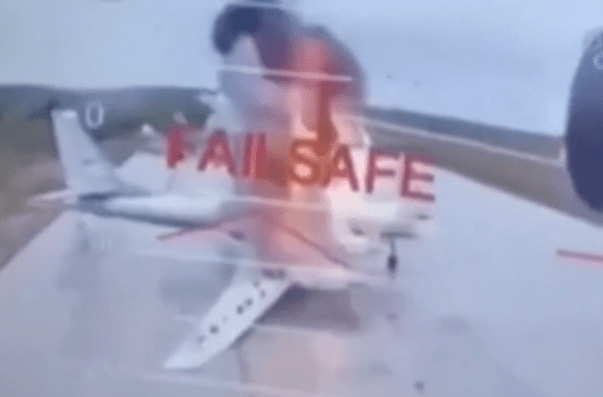
Acknowledging the attacks in his nightly address yesterday, Zelensky declared it would be an operation that would “definitely appear in history books.” The operatives responsible for carrying out the attack were all safely back on Ukrainian soil, he said, although Russia has since claimed to have arrested one of the men they say was driving one of the trucks. In words guaranteed to send the Kremlin into even more of a frenzy over the attacks, Zelensky said one detail he could reveal was that “the ‘office’ of our operation on Russian territory was located right next to the Russian FSB headquarters in one of their regions.”
Ukraine, naturally, is talking up the attack as having devastating consequences for Russia’s ability to bombard them. There does appear to be merit in this: the drone attacks mainly targeted Tu-95 and Tu-22 bombers, which Russia has been using to fire long-range missiles into Ukraine. Following a weekend over which Ukraine once again faced heavy bombardment by Russian forces – Moscow directed 472 drones and seven ballistic missiles at the country on Saturday night – this will also provide a welcome boost of morale.
Zelensky claimed that the strikes have eliminated a very specific 34 percent of Moscow’s strategic cruise missile carrier stock. While Kyiv has claimed to have done about $7 billion worth of damage, a more likely estimate is around $2 billion. Nevertheless, these aircraft were old Soviet-era stock – replacing them won’t be easy for the Russian army, particularly with the supply chain issues caused by the war.
This has not been lost on Russia’s military bloggers, the vast majority of whom appear to be acknowledging the enormity of the damage. One prominent pro-war milblogger who goes by the handle “Rybar” wrote on Telegram criticizing the special services for failing to anticipate the attack and the army for failing to adequately protect the jets: “These losses cannot be restored. This is, without understatement, a very serious damage to the war’s strategic component.”
The blame game that has now begun in Russian milblogging circles will almost certainly be reflected in the Kremlin, undoubtedly made all the more intense by the historic rivalry that has long existed between the country’s army and special intelligence service FSB. They will have to answer to Putin at the very least on the question of how so many drones were able to fly straight into a number of military bases. What, if any, electronic warfare countermeasures were in place?
The timing and success of yesterday’s attack will bolster Zelensky ahead of today’s latest round of peace talks set to take place between Russian and Ukrainian delegations in Istanbul. Questions remain over whether the negotiation will go ahead, not least because Russia has refused to publish its position paper of what it will be asking for ahead of the meeting.
These drone attacks certainly place Moscow in a sticky position ahead of today’s negotiation. With Trump continuing to exert pressure on both sides to come to an agreed peace deal, the Kremlin faces a choice: raise the subject of the strikes, retaliate and risk escalating the conflict in a way that pushes Trump away, or play them down and pretend they didn’t happen, leaving them to accusations of weakness from Russia’s frothing ultranationalists and influential milbloggers.
After a dismal five months of being cajoled and coerced into meeting Russia at the negotiating table, Zelensky can allow himself this moment to feel a momentary burst of smug pride: Ukraine’s president does, despite everything, still hold some cards against Putin.



